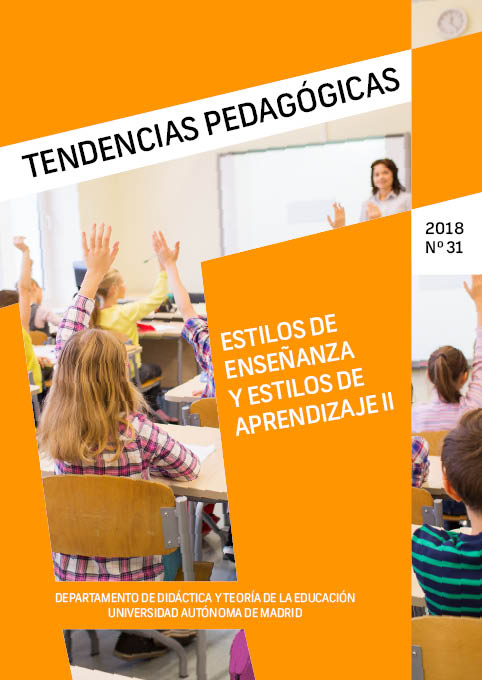Pedagogical practices and the inclusion of students with special educational needs (SEN)
Keywords:
inclusive pedagogical practices, learning styles, teacher trainingAbstract
This article presents results from the research "Analysis and Pedagogical Interventions: Identifying Successful Inclusive Pedagogical Practices", which aimed to characterize inclusive pedagogical practices in two classes of Inverse literacy integration, in schools of the public network of the Federal District and Brasilia-Brazil. The Methodology, with qualitative character, with participant observation, questionnaire, semi-structured interviews and analysis of documents and school records of students with Specific Educational Needs-NEEs involved. The results indicated the dynamic and flexible planning, the use of materials, diverse pedagogical strategies and evaluation, the organization of the physical space of the classroom for the collaborative work, as strategies that characterize the inclusive pedagogic practice and the need for greater investment in the training of teachers to respond to the diversity of learning styles of all students.
Downloads
References
Alonso, C.; Gallego D. & Honey, P. (1994). Los estilos de aprendizaje: procedimentos de diagnóstico y mejora. (4th ed.) Bilbao: Ediciones Mensajero.
BRASIL, MEC, SEB (2014) Pacto Nacional para Alfabetização na Idade Certa.Educação inclusiva .BRASILIA:CFORM/UNB.
Carvalho, E. R. (2006) Educação Inclusiva: pingo nos “is” Porto Alegre: Editora Mediação. 4ª edição.
Carvalho, E. R. (2010) Escola Inclusiva :a organização do trabalho pedagógico. 3ª edição. Porto Alegre: Editora Mediação
Creswell, J. W. (2010) Projeto de Pesquisa: Método qualitativo, quantitativo e misto. 3 ed.Porto Alegre:Artmed.
Habermans, apud Palácios, Samuel Gento. (2004, p.132) Guía Práctica para la investigación en educación.Madrid:Editorial Sanz y Torres,S.L
Mantoan, T. E. (1997, p. 121) apud Souza et all (2005,p17) Inclusão: História, Conceitos e Problematização .CfORM-UnB –Brasilia-DF.
Oliveira, M. M. B. C.. Ampliando o Olhar sobre as Diferenças através de Práticas Educacionais Inclusivas, pag 134 In: Experiências educacionais inclusivas: Programa Educação Inclusiva: direito à diversidade / Or-ganizadora, Berenice Weissheimer Roth. – Brasília : Ministério da Educação, Secretaria de Educação Especial, 2006.191 p.1.Educação inclusiva. 2.Práticas educativas I. Brasil. Ministério da Educação. Secretaria de Educação Especial.
Tomlinson C. A. y Allan, (2000). Leardership for Differentiating School&Classrooms. Alexandre VA. ASCD.
Souza, A. M. (2015) Identificando práticas pedagógicas inclusivas na sala de aula.In: Revista COM CENSO, Brasilia-DF. Edição Especial.Novembro 2014.ISSN 2359-24
Souza, A. M. (2016) Práticas pedagógicas inclusivas na alfabetização e atenção á diversidade de formas de aprender dos alunos. In VII Congresso Mundial de Estilos de Aprendizagem
Disponível em: http://biblioteca digital.ipb.pt/handle/10198/12934
ISBN: 978-972-745-207-7 Pag 854
